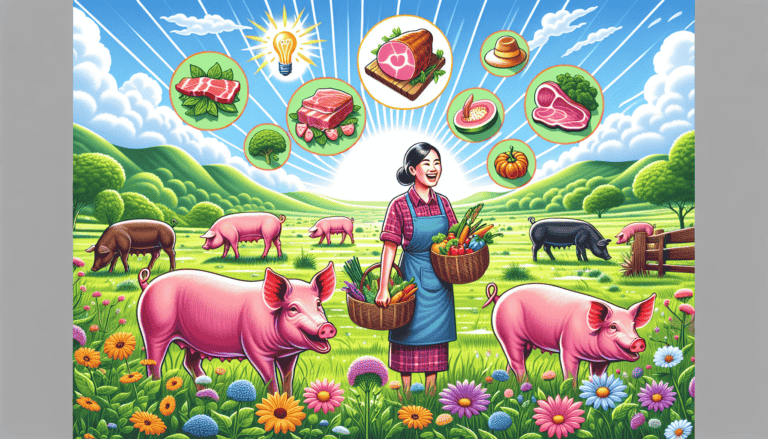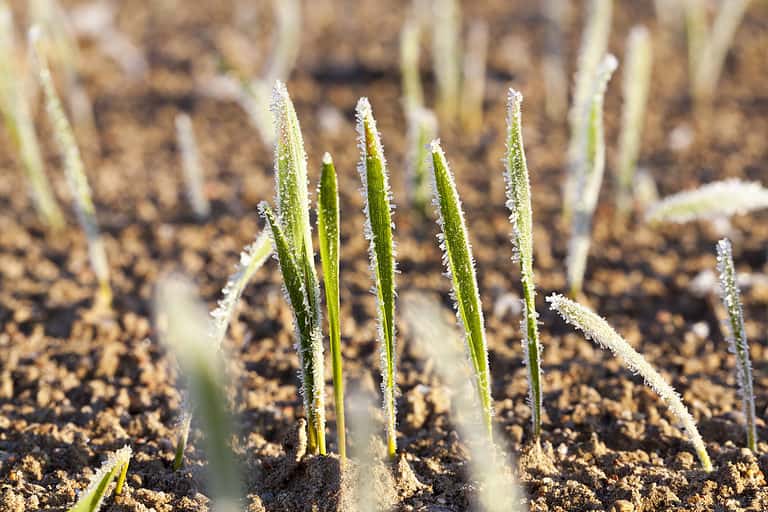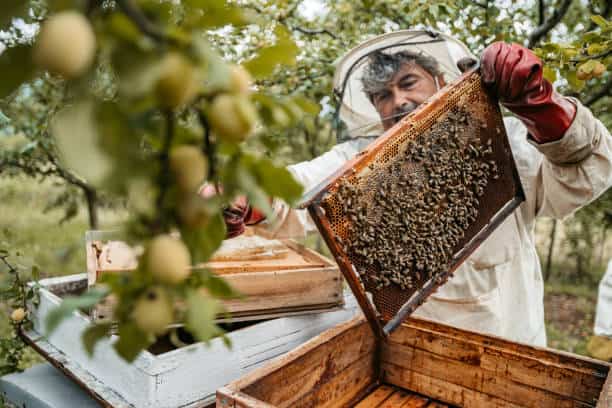Efficient and Easy Hobby Farm Chores for Every Season
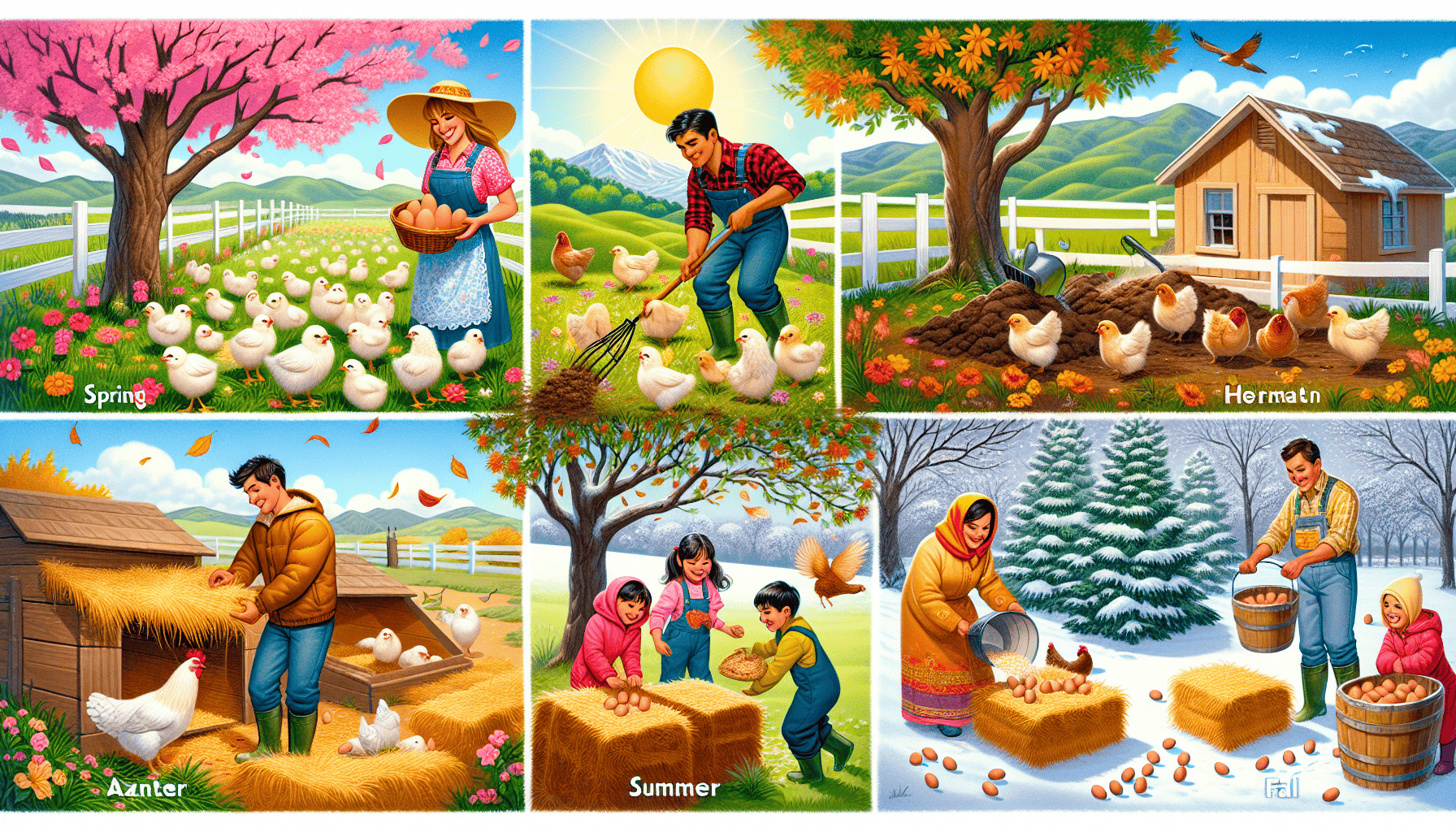
This guide is designed to simplify the extensive chores that come with maintaining a hobby farm, including daily upkeep and tasks specific to each season. By providing practical advice for every part of the year, it aims to enhance efficiency and ease within your farming lifestyle.
Key Takeaways
Efficient farm management relies on careful planning and breaking chores into manageable tasks to maintain a productive hobby farm throughout the year.
Involving children in age-appropriate chores not only teaches responsibility but also fosters a strong work ethic and family bonding.
Seasonal chores are essential for animal welfare and farm productivity, and establishing a structured routine can help balance farm duties with personal life.
Efficient and Easy Hobby Farm Chores for Every Season

Working smart is as important as working hard when it comes to hobby farming. To reduce the overall workload on your farm, completing chores efficiently and effortlessly can make a significant difference. Key activities such as inspecting fence lines, cutting grass, and feeding or providing nutrients to the pasture are vital for maintaining your farm’s condition. The extent of these tasks may vary based on various elements like the design of the farm, improvements in maintenance practices, and individual choices. Inefficiently planned layouts increase both time spent and labor intensity for upkeep duties. Thus thorough planning of your layout is crucial.
It’s beneficial to have an understanding of what each day, week, and month will demand regarding chore time commitments so that you’re better able to manage your operation with effectiveness. By dividing larger tasks into smaller parts that are easier to handle, ensures completion without being burdened by too much at once.
Next up, we’ll delve into specific seasonal chores along with strategies for accomplishing them effectively.
Introduction
Living a life on a small farm goes beyond the scope of an ordinary job. It’s an existence steeped in self-reliance, where families can take pride in producing their own food. Engaging with activities such as tending to chickens and cultivating vegetables, hobby farming blends agrarian tasks with personal hobbies amidst the serene backdrop of the countryside. It holds significant value for numerous households that aspire to instill their kids with an appreciation for diligent labor and a strong connection to nature.
The sheer delight found within hobby farming lies in nurturing one’s agricultural interests. Whether your passion lies in raising animals, harvesting crops from your land or upholding eco-friendly practices, these endeavors infuse everyday rural living with satisfaction and intent.
Our focus will include creating efficient morning routines to kickstart each day, delegating chores suitable for children of various ages, and managing vital daily tasks on the farm effectively. Delve into making every season count while reveling in this authentic expression of life through hobby farming, where education meets enjoyment throughout each unique time of year.
Starting Early: The Morning Routine
Getting up early and establishing a well-ordered morning routine is crucial for running a hobby farm successfully. Conducting fundamental chores like inspecting fence lines, cutting grass, and administering food or nutrients to the pastures are standard parts of these dawn activities. When you effectively strategize these tasks, it helps in their swift accomplishment, allowing additional time for other duties throughout the day. Keeping tools and equipment within easy reach streamlines daily farm work by saving both time and physical effort.
The design of your hobby farm can have a profound impact on how quickly and easily morning routines are carried out. An inefficient layout could lead to increased labor hours necessary for upkeep tasks. Hence thoughtful planning when setting up your farming space is imperative. By organizing the setup so as to cut down travel distances across the property while enhancing workflow efficiency, you not only make mornings more productive but also more pleasant.
Moving forward, we will explore assigning suitable chores based on age groups among children as well as strategies for engaging every family member in managing daily operations on the farm.
Age-Appropriate Chores for Kids
Involving children in farm chores from a young age can teach them valuable life skills and foster a sense of responsibility and independence. For toddlers and young children aged 2-5, simple tasks like picking up toys, putting dirty clothes in a hamper, and helping in the garden are ideal. These chores are not only manageable for their age, but also provide a sense of accomplishment and satisfaction.
As children grow older, their responsibilities can increase. Kids between 6-10 can take on tasks such as loading the dishwasher, cleaning bathrooms, and gathering eggs. Middle schoolers, aged 11-15, can handle more demanding chores like feeding animals, picking berries, and even milking animals.
Assigning age-appropriate chores ensures that each child contributes to the farm’s upkeep while learning important skills and developing a strong work ethic.
Essential Daily Tasks
Managing a hobby farm involves a suite of daily chores that are crucial for its smooth operation. These include the upkeep of animal pens, securing fences to safeguard animals, and cleaning feeding and watering stations to ward off pests and disease. Regular barn maintenance is key in preventing harmful organisms from thriving, thereby promoting the well-being of your farm animals.
The health of chickens hinges on routine sanitation procedures for their feeders and water troughs. Inspecting fences every day ensures containment and safety across the entire farm by averting potential escapes from livestock or intrusion by predators which could jeopardize other animals’ security. Proper feeding routines must also be observed diligently to maintain optimal animal health.
Incorporating these vital daily tasks into your schedule guarantees not just efficient running, but also enhances productivity at your hobby farm. By attending carefully to these duties each day, you support both farming operations as well as ensure adequate care in terms of feeding and watering needs for all animals on the premises.
Seasonal Chores Breakdown
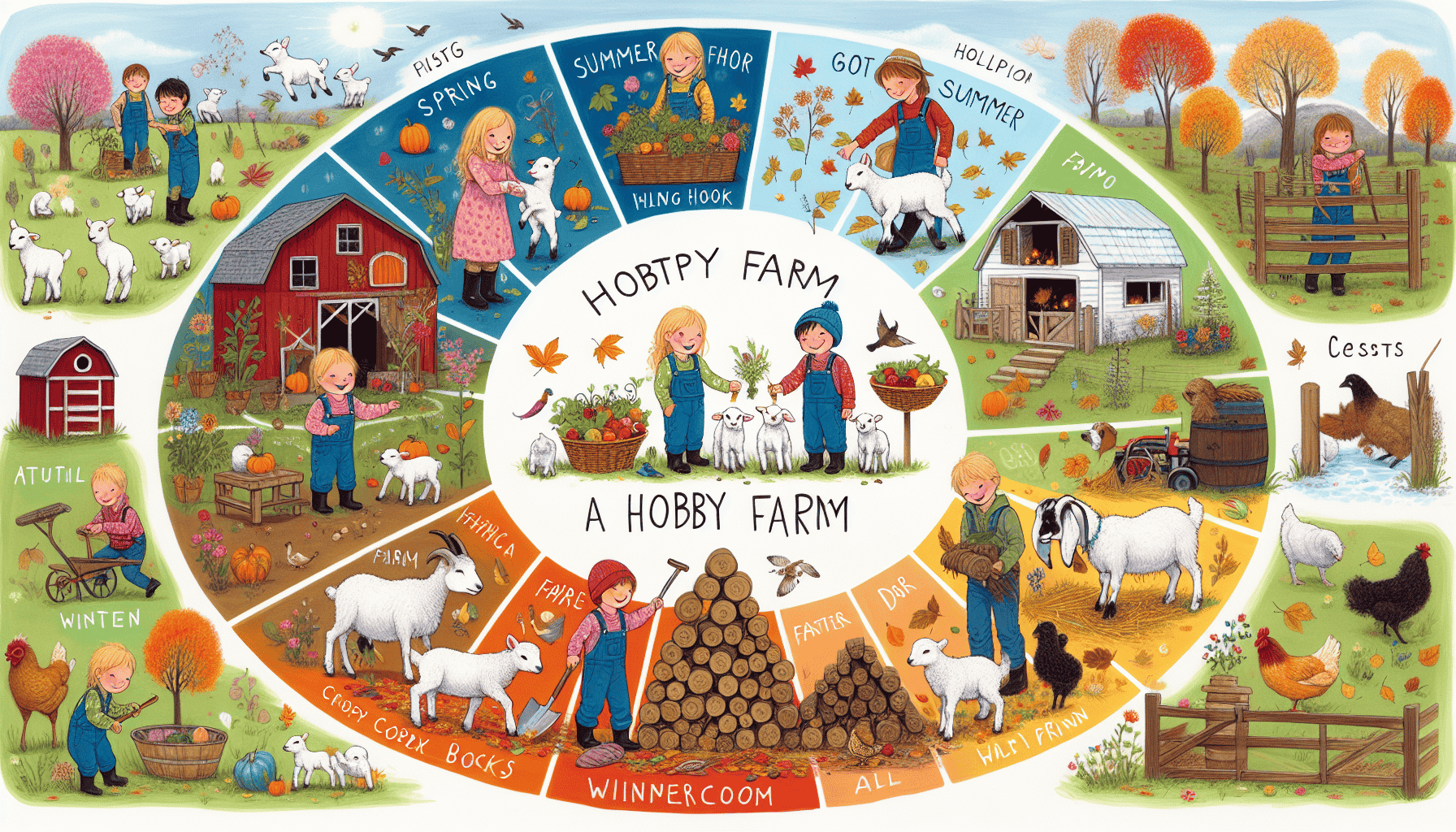
Maintaining a hobby farm requires attending to specific seasonal chores that are crucial for the health of the farm and its animals. Every season presents unique responsibilities essential for sustaining an efficient and well-managed farm.
The following represent typical tasks associated with each season:
Spring necessitates readying the garden
Summer involves planting crops as well as their weeding
Fall is time to gather harvested produce
Winter demands fortifying shelters for livestock against cold
These activities play a critical role in preserving the welfare of both your agricultural haven and its residents.
We will delve into particular duties relevant to each part of the year, delivering advice on how best to accomplish these tasks effectively. By grasping and planning ahead for these cyclical duties, you can assure ongoing productivity and vitality at your hobby farm throughout all seasons.
Spring Chores
The spring season brings a flurry of activity to the hobby farm, as it’s time to get ready for the upcoming growth period. Key jobs include getting the soil in prime condition for planting and providing proper attention to newly born animals. Enriching garden beds by sprinkling compost and effectively spreading manure is crucial for fostering robust plant development.
Spring necessitates pruning fruit trees and various plants to stimulate vigorous growth and bountiful yields. Constructing compost heaps using manure near fence lines can enhance soil fertility while also offering a practical solution for waste disposal. Diligently attending to these chores during spring lays the groundwork for an abundant harvest throughout the growing season on the farm.
Summer Chores
During the summer months, a hobby farm demands considerable effort with numerous chores that must be carried out daily for its proper maintenance. The grass requires weekly mowing to maintain its health and appearance. Allocating approximately 30 minutes each morning and evening is necessary for crucial tasks such as feeding and watering horses, which are essential to their well-being.
During this season, it’s vital to dedicate time and energy to spraying weeds and gathering crops. Diligently performing these duties guarantees a fruitful farmstead while preserving the health of your animals throughout the warm weather period.
Fall Chores
Autumn is the ideal season for readying your farm for the impending winter months. It’s essential to carry out preservation of summer-harvested food through methods like canning, drying, or freezing as a key autumn task. Ensure that your tools for preservation are in good working order and arrange all necessary ingredients to streamline the process.
It is equally vital during this time to clean barns and animal shelters thoroughly, getting rid of old bedding material to minimize the chances of diseases affecting livestock. Clearing any rubbish from your property and keeping farm equipment well-maintained will facilitate smoother operations when winter arrives.
It’s crucial as part of fall activities to prepare your land by applying mulch over garden beds and strategizing crop rotations for the upcoming spring season.
Winter Chores
The cold season introduces unique difficulties for those who practice hobby farming. A crucial task is securing adequate insulation for animal shelters to shield the livestock from the chilly weather. Equally important is the chore of regularly breaking ice in water troughs, ensuring that animals have access to necessary hydration.
Winter also provides an opportunity to enhance the farm’s natural environment. This includes constructing habitats for wildlife and controlling tree development. Diligently attending to these winter tasks guarantees both a robust ecosystem on your farm and well-cared-for animals ready to withstand winter’s challenges.
Involving the Whole Family
Engaging the entire family in farm tasks serves a dual purpose. It’s not just functional, but also cultivates a sense of accountability and satisfaction from contributing to the family’s sustenance. Hobby farms are advantageous as they offer both amusement and instructive opportunities, particularly valuable for kids who learn about where food comes from. When children are taught to perform chores, they acquire vital skills that contribute towards building their diligence and sense of responsibility.
Tailoring specific duties can pique interest in those kids who typically avoid chores by tapping into their appetite for engaging challenges. Recognizing what specifically inspires each child can be key in getting them involved with farm work.
Demonstrating an enthusiastic approach when doing chores has benefits too. It influences how children perceive these tasks—as acts of service toward their loved ones rather than tedious obligations.
Managing Chores Efficiently
Efficiently managing tasks is crucial for the smooth operation of a hobby farm. For single mothers juggling children’s needs and farming duties, it’s critical to establish structured daily and weekly schedules that cater to both farm operations and personal life commitments.
To avoid feeling overwhelmed by larger projects, breaking them into smaller portions can make the workload more manageable. Utilizing technology like screen time as an incentive for finishing chores can prove useful in motivating those involved.
Employing these methods will enhance your ability to handle farm chores with greater efficiency while minimizing exhaustion from the workload.
Dealing with Resistance
When children and helpers show reluctance towards farm chores, it’s often an obstacle encountered on hobby farms. Instilling a sense of accountability in children who resist tasks is crucial. To rekindle their enthusiasm upon finishing their duties, offer affirmative accolades like ‘Wow…I did that!’ to bolster their spirits.
Phrases such as ‘Get it done or you’ll keep going out there until you get it done’ may prove beneficial in spurring motivation among hesitant aides. Employing these tactics combats resistance by cultivating a feeling of obligation and satisfaction from accomplishing farm tasks.
The Role of a Homesteading Mother
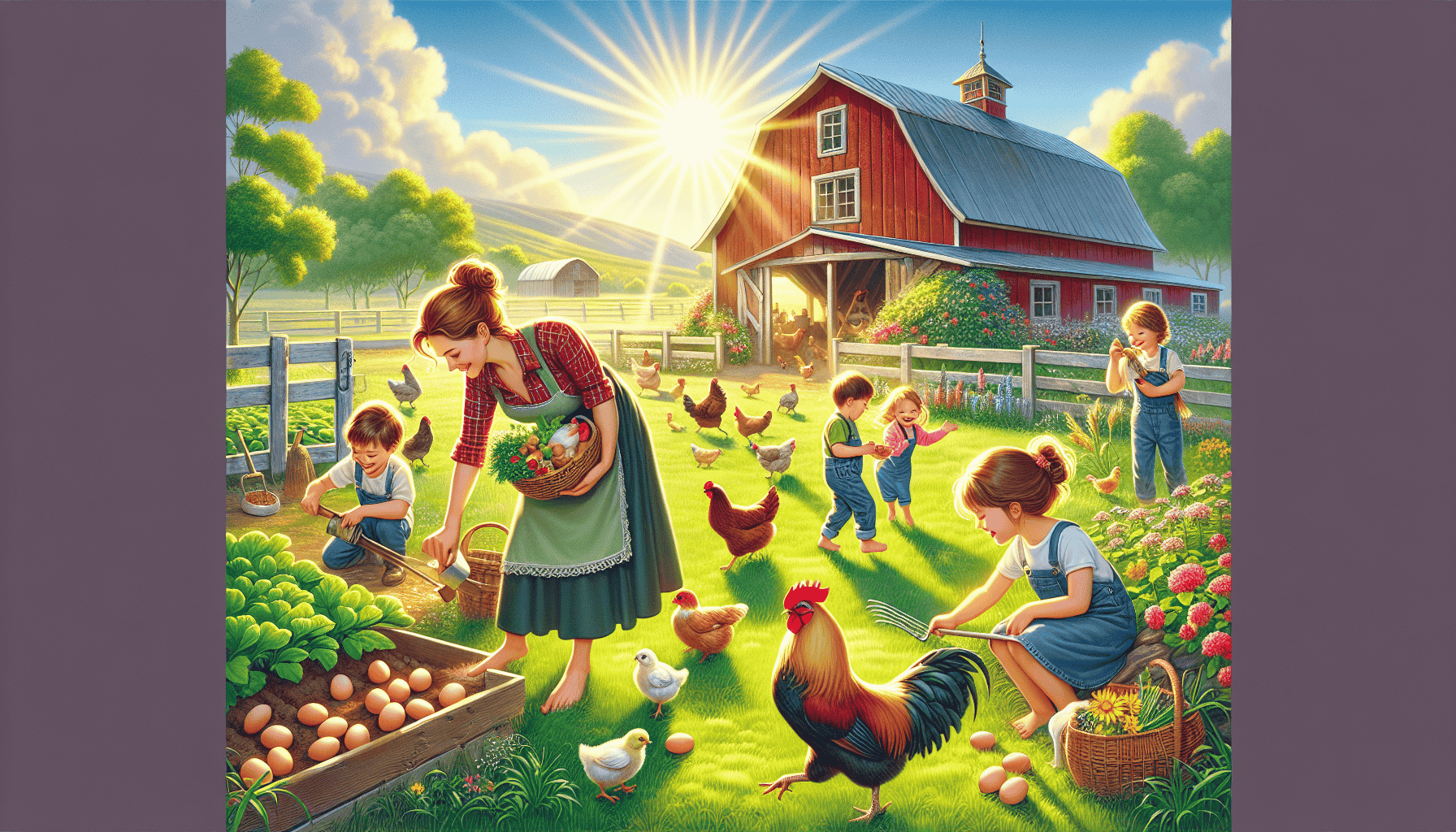
A homesteading mother’s duties on a hobby farm are diverse and demanding. When Amanda was let go from her job, she embraced the opportunity to sustain herself through farming, mirroring the transformative journey that single mothers often undergo when adapting to agricultural life. Single mothers at the helm of a hobby farm can encounter specific hurdles like balancing their time effectively, coping with financial pressures, and simultaneously handling various responsibilities.
Single moms can maintain equilibrium between home care and farming obligations by meticulous planning, setting priorities for tasks ahead, and seeking out support networks. By adopting these approaches, homesteading mothers can adeptly oversee their farms while ensuring they meet their family’s needs.
Maintaining Animal Well-Being
The health and happiness of animals on a hobby farm are essential. Performing routine chores according to the seasons is vital for both efficient farm operation and animal welfare. It’s important to clean barns, shelters, including the chicken coop thoroughly before winter sets in, as this helps keep disease at bay by maintaining cleanliness. Utilizing suitable bedding materials like wood shavings for chickens or gravel in runs also contributes significantly to promoting good foot health and overall wellness.
It’s critical that all animal housing has proper ventilation. This minimizes moisture accumulation and keeps ammonia levels low—factors which greatly benefit an animal’s respiratory system. Different animals require varying amounts of space—chickens need approximately 2-3 square feet each when housed indoors whereas goats might need about 225 square feet for every pair. By providing these necessary living conditions, one ensures that their hobby farm inhabitants remain healthy and content.
Balancing Farm Life and Personal Time
Maintaining a balance between work and personal life on a hobby farm demands ongoing adjustments and thoughtful scheduling. Integrating daily chores like doing laundry or garden weeding into an established routine can stave off accumulating tasks, contributing to more organized operations. Preparing meals in batches over the weekend can alleviate some of the time spent cooking during weekdays, freeing up moments for attending to various responsibilities around the farm.
Regularly touching base with family members is critical for managing how everyone handles the pressures that come with farming activities. Aligning these tasks with individual priorities within the family helps avoid potential disputes while fostering overall well-being.
Adaptability is key since shifts in life’s dynamics often necessitate revisions in both plans and roles. By implementing such flexible approaches, those who run hobby farms are better equipped to juggle their commitments on the land with enjoying leisure time effectively.
Summary
Embracing the life of a hobby farm brings with it the joys and rewards of self-reliance, familial responsibility, and strengthening family ties. A well-organized approach to daily chores, active participation from all family members, along with harmonizing farm duties with leisure time are key components to operating a flourishing and delightful hobby farm. The varying tasks each season presents can be managed effectively through meticulous planning coupled with an optimistic outlook. Delight in the fulfillment that comes from engaging deeply in your pastime on your land. Enjoy cultivating both crops and relationships while living this wholesome lifestyle.
Frequently Asked Questions
What are some essential daily tasks on a hobby farm?
On a hobby farm, routine maintenance is crucial to its operation. This includes scrubbing out pens for the animals, inspecting fences for any damage or wear and making certain that feeding and watering stations are in good condition to facilitate smooth running of daily activities.
Adhering diligently to these tasks is essential for maintaining a thriving and contented farm atmosphere!
How can I involve my children in farm chores?
Get your kids involved by starting them with simple, age-appropriate tasks—like feeding animals or collecting eggs for the little ones and moving bales of hay or helping with planting for the older ones.
It’s a great way to teach them responsibility while having fun on the farm!
What are some tips for managing farm chores efficiently?
To ensure efficiency in handling your farm chores, it’s crucial to devise an organized timetable that dissects extensive tasks into smaller, more easily accomplished parts.
Remember to harness the power of technology as a means to enhance your effectiveness in carrying out these duties!
How can I handle resistance from children when it comes to chores?
When dealing with children’s reluctance to do chores, it is effective to cultivate a sense of responsibility and employ positive reinforcement.
To motivate them, utilize uplifting words that can help make the tasks seem less daunting.
What are some key strategies for balancing farm life and personal time?
To effectively balance farm life and personal time, establish a routine for daily tasks and dedicate weekends for meal prep.
Regular family check-ins and maintaining flexibility will also help you adapt to life’s changes.

